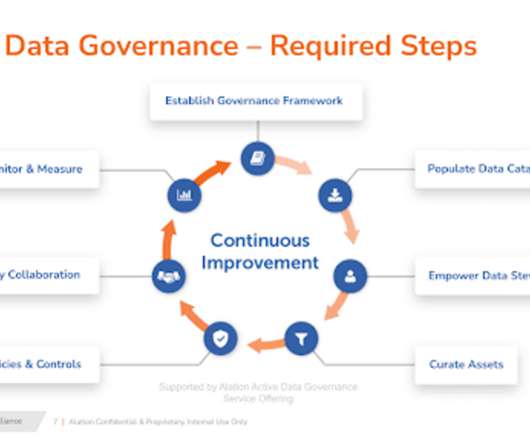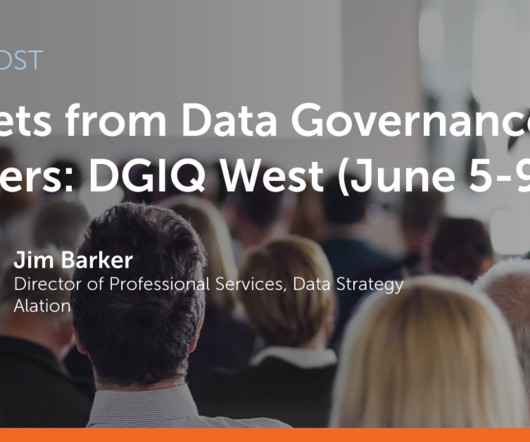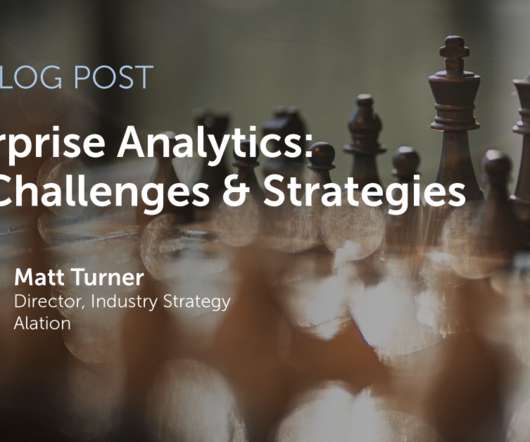9 data governance strategies that will unlock the potential of your business data
IBM Journey to AI blog
SEPTEMBER 5, 2024
Everything is data—digital messages, emails, customer information, contracts, presentations, sensor data—virtually anything humans interact with can be converted into data, analyzed for insights or transformed into a product. Managing this level of oversight requires adept handling of large volumes of data.












Let's personalize your content